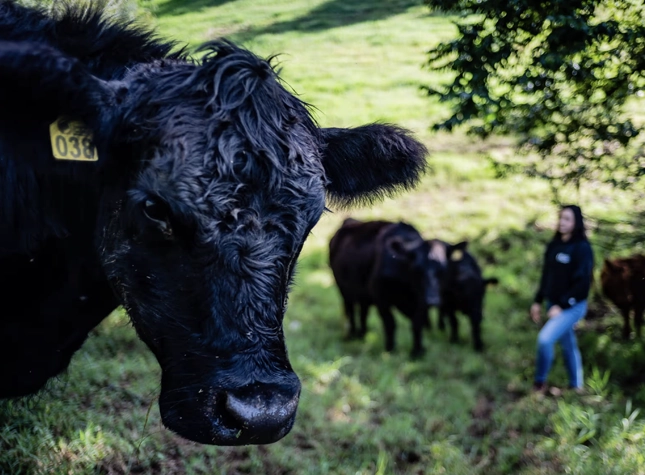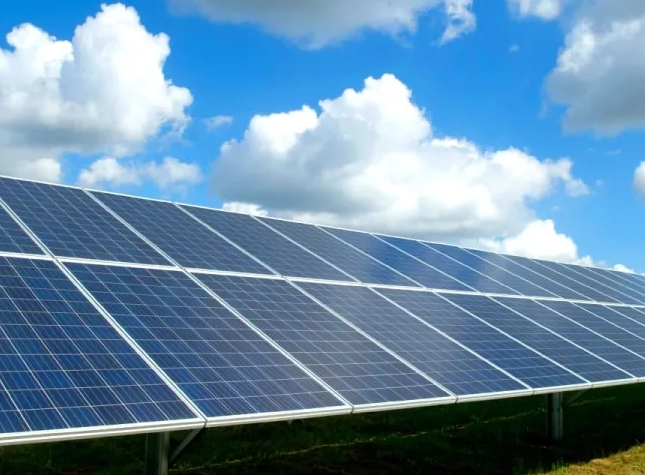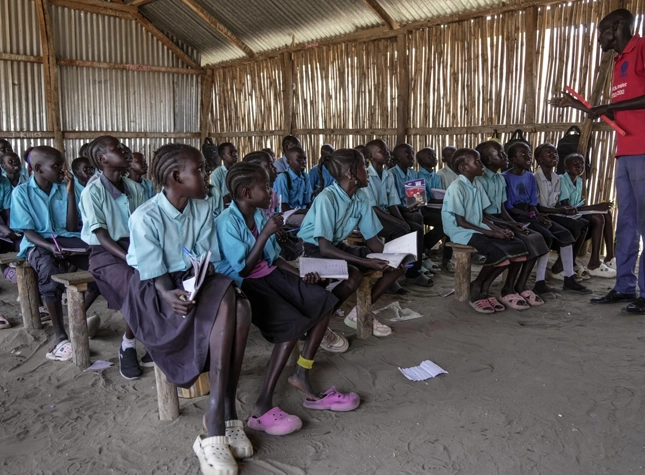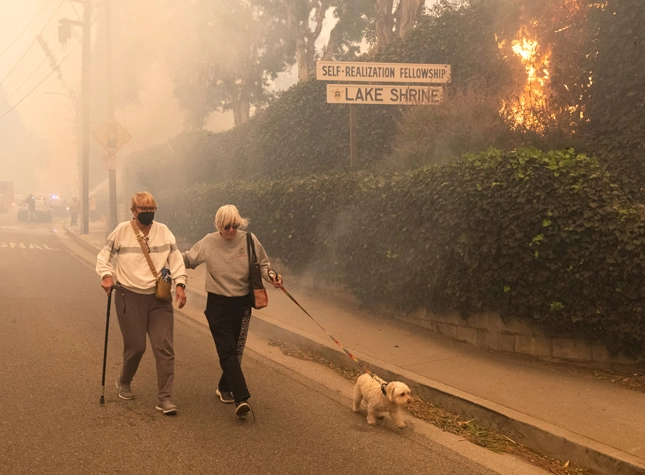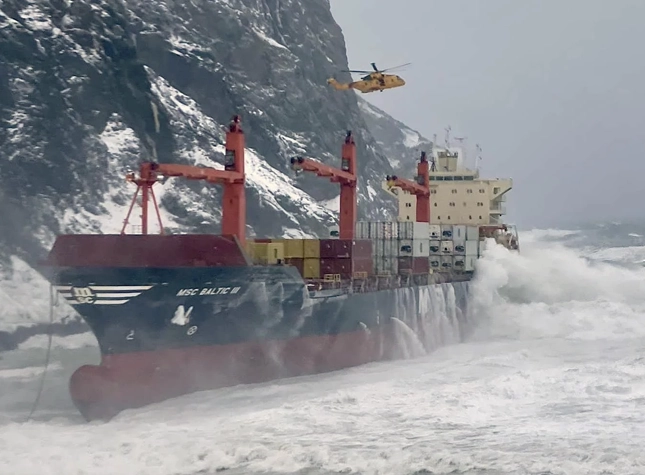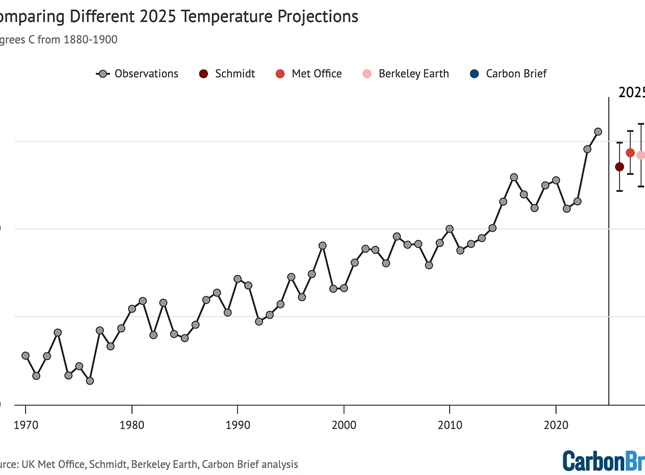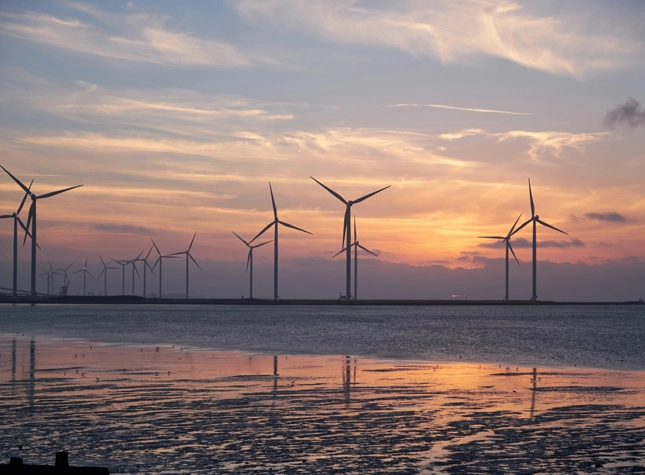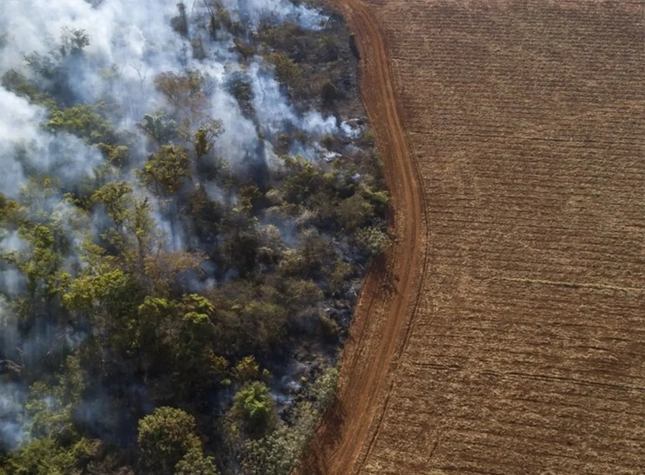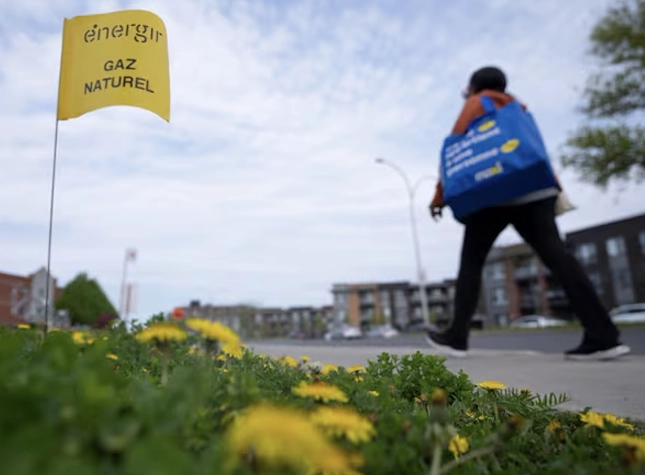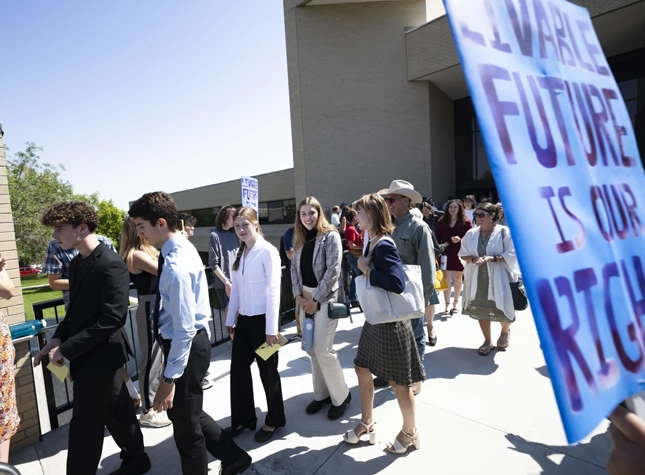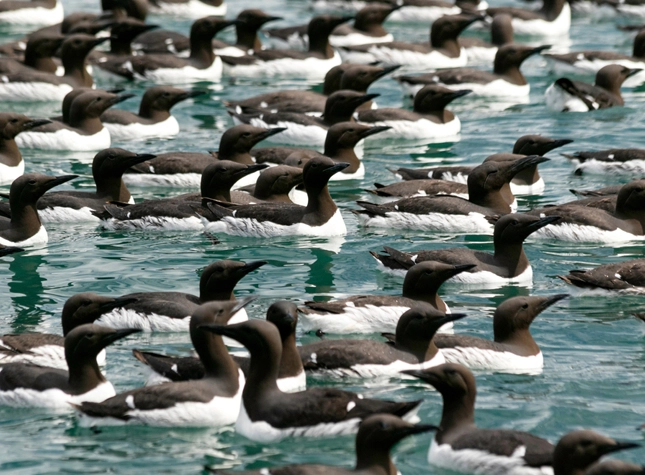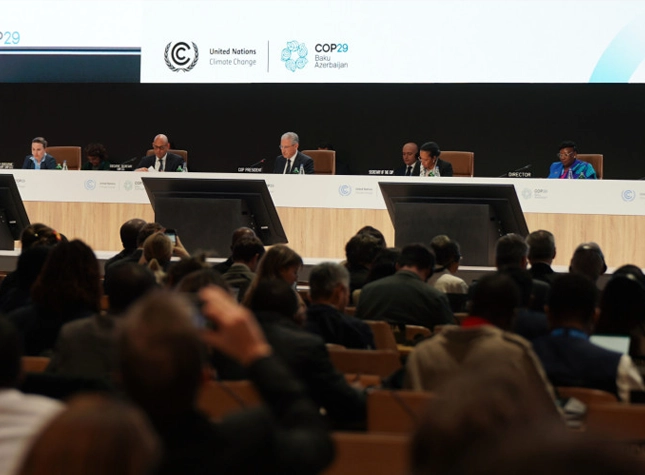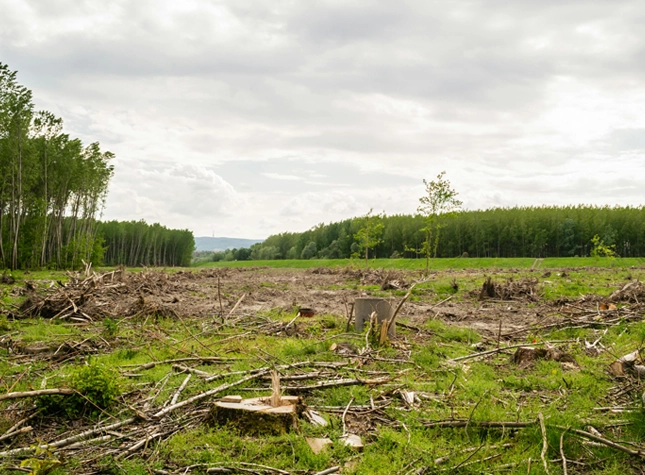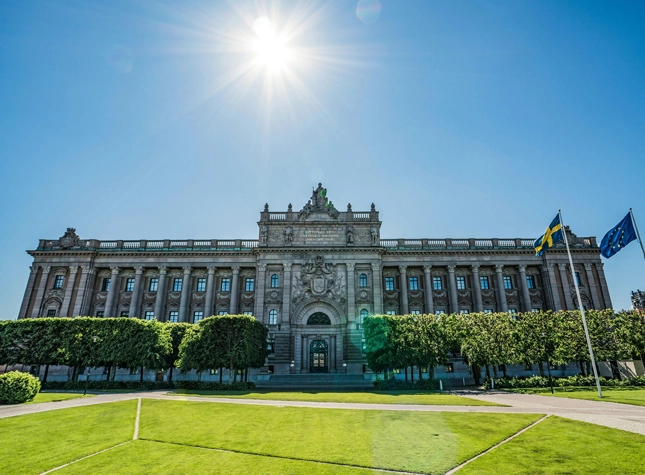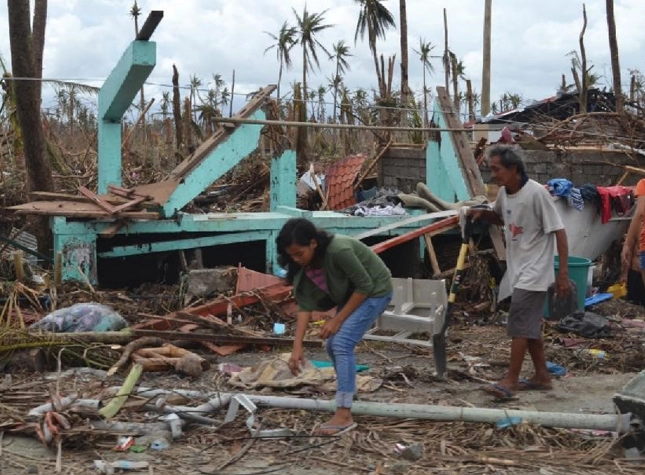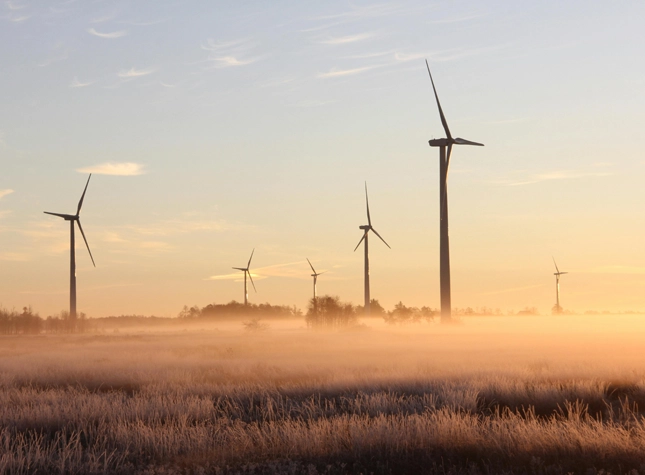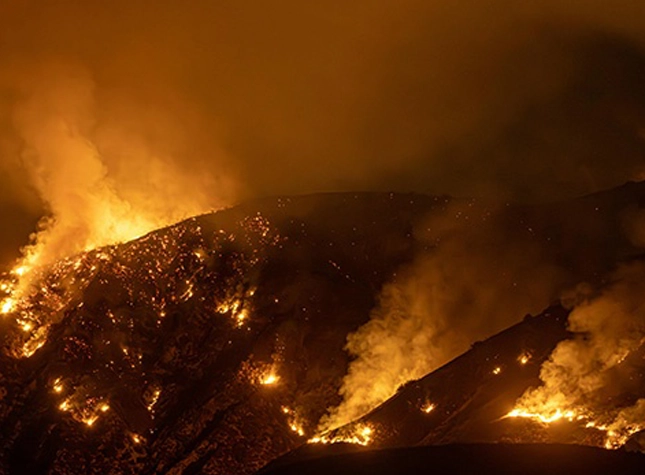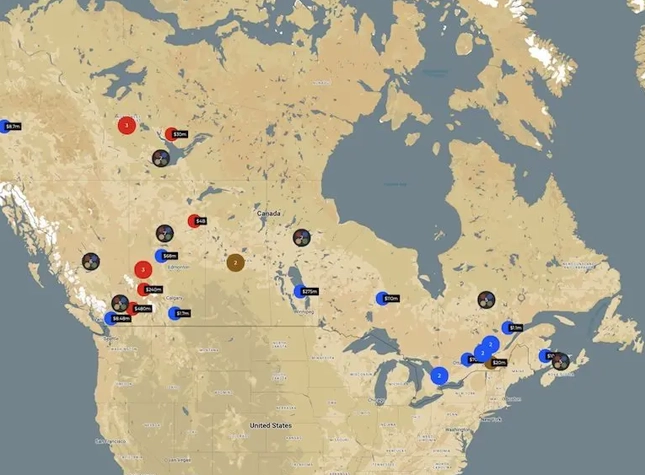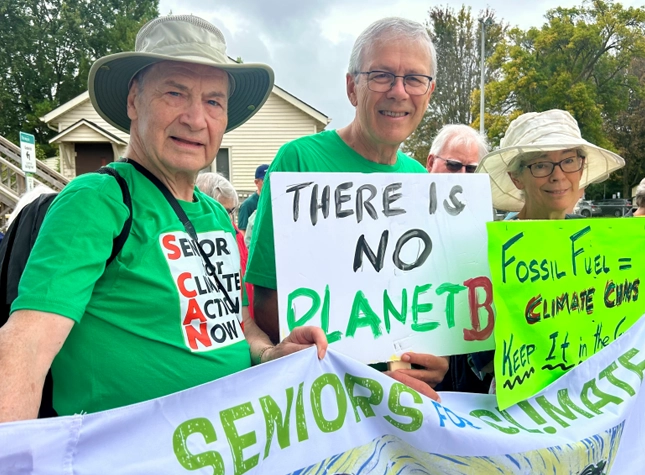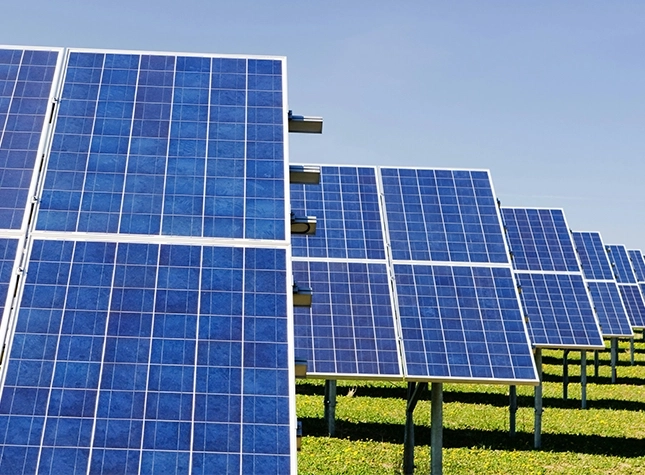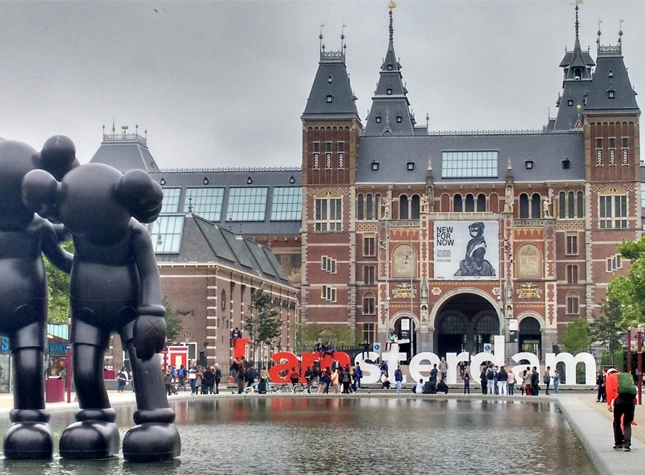
Ribbiting News
A selection of news, reports, tools, and events reflecting our global climate journey.

February 2025
Can Colombia’s ‘crazy’ cattle ranchers make beef an eco-friendly choice?
By rejecting traditional grazing and maintaining trees and wildlife habitats alongside pasture, farmers are turning their land carbon positive. But will it be enough? Continue reading here.
New York’s largest solar farm is a go with $950 million in funding
Clean energy investment manager Greenbacker Renewable Energy has secured $950 million to build what will be New York State’s largest solar farm.
Greenbacker acquired the 500-megawatt (MW) Cider project from renewable energy developer Hecate Energy. Work started in October, and the project is expected to come online in 2026. Continue reading here.
South Sudan closes schools after students collapse due to extreme heat
South Sudan closed all schools Thursday for two weeks due to an extreme heat wave that has caused some students to collapse.
This is the second time the country — which faces extreme effects from climate change, including flooding during the rainy season — has closed schools during a heat wave in February and March. Continue reading here.
Doctors and Medical Schools Are Changing Treatments and Training to Respond to the Warming Climate
It took nearly a month to contain the wildfires that burned over 40,000 acres around Los Angeles in January, but doctors warn that serious health implications from the blazes are just starting to unfold and will likely persist much longer. While all wildfires produce particulate matter and caustic ash, the toxic elements from burning buildings, cars and infrastructure differentiate the smoke and ash from last month’s Southern California fires. Children are especially vulnerable to the toxins in the smoke and ash. Continue reading here.
UN warns that ‘time is not on our side’ as key climate science meeting begins
Representatives from nearly 200 countries gathered on Monday to work out the details of the next major UN climate science report.
The Intergovernmental Panel on Climate Change (IPCC) is meeting for a week-long session in Hangzhou, China to negotiate the content and timing of the next landmark assessment. It comes not long after several climate agencies confirmed that 2024 was the hottest year on record. Continue reading here.
Fisheries and Oceans Canada expects to flounder under mounting climate costs
Hurricane Fiona left a trail of destruction across the Atlantic Coast in September 2022 wreaking havoc on wharves, fisheries, vessels, and gear and the federal government’s pocketbook.
In response to the climate disaster, Fisheries and Oceans Canada (DFO) has had to earmark more than $563 million to deal with Fiona’s aftermath, including damage to 142 out of 184 small craft harbours on the Atlantic coast. Continue reading here.
January 2025
January sets an unexpected temperature record
Despite long-faded El Niño conditions, 2025 saw the warmest January on record.
Both 2023 and 2024 were exceptionally warm years, at just below and above 1.5C relative to preindustrial in the WMO composite of surface temperature records, respectively. While we are still working to assess the full set of drivers of this warmth, it is clear that a sizable portion of 2024’s elevated temperatures were driven by a moderately strong El Niño event that peaked in November 2023. Continue reading here.
Researchers propose a ‘circular economy’ solution to housing affordability against climate change
A global housing affordability crisis is underway, so when the Center for Demographics and Policy at Chapman University in the U.S. released a report this year highlighting the “disastrous” state of housing affordability for 94 markets — where median home prices far exceed median wages by many times, making housing much more expensive for the current generation of first-time homebuyers than for their parents — it wasn’t surprising. Continue reading here.
A new life for empty offices: Growing kale and cucumbers
In some cities, as many as one in four office spaces are vacant. Some start-ups are giving them a second life — as indoor farms growing crops as varied as kale, cucumber, and herbs.
Since its 1967 construction, Canada’s “Calgary Tower”, a 190m (623ft) concrete-and-steel observation tower in Calgary, Alberta, has been home to an observation deck, panoramic restaurants and souvenir shops. Last year, it… Continue reading here.
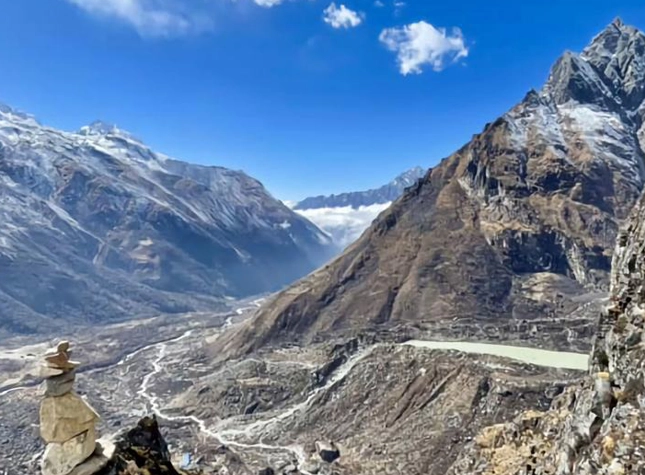
Climate emergency: 2025 declared international year of glaciers
In 2023, glaciers experienced their greatest water loss in over 50 years, marking the second consecutive year in which all glaciated regions worldwide reported ice loss.
Switzerland, for instance, saw their glaciers lose 10 per cent of their total mass between 2022 and 2023, according to the WMO. Continue reading here.
How US states are leading the climate fight – despite Trump’s rollbacks
As the Trump administration rolls back decades-old environmental protections and pulls Biden-era incentives for renewable energy, state-level advocates and officials are preparing to fill the void in climate action.
Some state leaders are preparing to legally challenge the president’s environmental rollbacks, while others are testifying against them in Congress. Meanwhile, advocates are pushing for states to meet their ambitious climate goals using methods and technologies that don’t require federal support. Continue reading here.
Norway on track to be first to go all-electric
Norway is the world leader when it comes to the take up of electric cars, which last year accounted for nine out of 10 new vehicles sold in the country. Can other nations learn from it? Continue reading here.
December 2024
How a Colombian City Cooled Dramatically in Just Three Years
With “green corridors” that mimic the natural forest, Medellín is driving down temperatures — and could become five degrees cooler over the next few decades. Read full story here.
Amazon rainforest: Deforestation rate halved in 2023
President Lula has pledged to end deforestation in the Amazon by 2030. The rate of deforestation in Brazil’s Amazon fell by nearly 50% in 2023 compared to the previous year, space agency data suggests. Brazil’s environment ministry said it was the lowest recorded deforestation rate in the last five years. Though smaller than in previous years, the deforested area is still more than six times the size of New York City. Continue reading here.
7,000 microplastics Studies Show We Have One Really Big Problem
It’s been 20 years since a paper in the journal Science showed the environmental accumulation of tiny plastic fragments and fibres. It named the particles “microplastics.” The paper opened an entire research field. Since then, more than 7,000 published studies have shown the prevalence of microplastics in the environment, in wildlife and in the human body. So what have we learned? Continue reading here.
Quebec to ban fossil fuel natural gas heating in homes by 2040
Environmental groups are praising Quebec’s plan to ban fossil-fuel-based natural gas heating in homes by 2040 in an effort to significantly reduce greenhouse gas emissions. “Basically the idea is to stop the hemorrhage,” said Jean-Pierre Finet, analyst with Le Regroupement des organismes environnementaux en énergie (ROEE), which advocates for sustainable energy in Quebec and a shift away from fossil fuels. Read full story here.
Global warming can’t be ignored, Montana’s top court says, upholding landmark climate case
Montana’s Supreme Court upheld a landmark climate ruling that said the state was violating residents’ constitutional right to a clean environment by permitting oil, gas and coal projects without regard for global warming.
The justices, in a 6-1 ruling, rejected the state’s argument that greenhouse gases released from Montana fossil fuel projects are minuscule on a global scale and reducing them would have no effect on climate change, likening it to asking: “If everyone else jumped off a bridge, would you do it too?” Read full story here.
Massive Alaskan Bird Die-Off Shocks Scientists
Scientists have reported the most significant bird mortality event in modern history, with over 4 million common murres perishing in Alaska. This catastrophic loss, revealed in a recent study published in the journal Science, surpasses any previous known wildlife disaster, including the infamous Exxon Valdez oil spill. Continue reading story here.
November 2024
COP29 UN Climate Conference Agrees to Triple Finance to Developing Countries, Protecting Lives and Livelihoods
The UN Climate Change Conference (COP29) closed with a new finance goal to help countries to protect their people and economies against climate disasters, and share in the vast benefits of the clean energy boom. Read more about their breakthrough agreement here.
‘Spectacular’ growth in renewables in 2023 keeps COP28 pledge within reach, says IEA
Global renewable energy capacity grew by the fastest pace in the last 20 years in 2023, which could put the world within reach of meeting a key climate target by the end of the decade, according to the International Energy Agency (IEA).
The Paris-based agency said rapid growth of solar in China was the main driver as the world added nearly 510 gigawatts — enough to power nearly 51 million homes for a year — with Europe, the United States and Brazil also seeing record growth. Continue reading here.
Press Release: Nature and land use will make or break the climate transition
A leading policy forecasting body commissioned by the PRI, the $120tn UN-supported investor group, today publishes new global analysis of the trajectory of national environmental policies and their impacts on companies and investors.
The Inevitable Policy Response (IPR) forecast, built from detailed analysis of over 300 major policy levers and drawing on the input of over 100 policy experts, shows that progress on nature and land use will ultimately make or break efforts to achieve Net Zero. Continue reading here.
‘Revolutionary’: EU Parliament votes to criminalize most serious cases of ecosystem destruction
The European Union has become the first international body to criminalize the most serious cases of environmental damage that are “comparable to ecocide.”
Ecosystem destruction, including habitat loss and illegal logging, will be punished with tougher penalties and prison sentences under the EU’s updated environmental crime directive. Continue reading here.
The 2024 state of the climate report: Perilous times on planet Earth
We are on the brink of an irreversible climate disaster. This is a global emergency beyond any doubt. Much of the very fabric of life on Earth is imperilled. We are stepping into a critical and unpredictable new phase of the climate crisis. Continue reading here.
University of Toronto’s environment school cuts financial ties to fossil fuels
The University of Toronto’s environment school has announced it will financially dissociate from fossil fuel companies, in a landmark win for climate activists. Continue reading here.
October 2024
Ontario’s top court orders new hearing in youth climate case
Young people arguing Ontario’s weakened emissions target violates their Charter rights Read the full article here.
Net Zero Stocktake 2024
Net Zero Tracker (Oxford Net Zero, Energy and Climate Intelligence Unit, Data-Driven EnviroLab and NewClimate Institute) released the latest stocktake of how the world is doing on our journey towards Net Zero carbon emissions. You can read it here.
Turtle comebacks and solar breakthroughs: Positive environmental stories from 2024
Climate anxiety is very real, but these good news stories from 2024 prove there is hope for our planet. Eco-anxiety, climate doom, environmental existential dread – as green journalists, we see these terms used a lot – and often feel them ourselves.
While there’s a lot to be worried about when it comes to the climate and nature crises, we must not lose hope – because hopelessness breeds apathy.
The media has an important role to play in combatting climate doom. It’s our job to be truthful and accurate in our reporting, not trying to downplay or greenwash the situation. But it’s also our job to show that there is hope. Read the full article here.
Research reveals global increase in wildfires due to climate change despite human interventions
Researchers have made a direct link between climate change and the increasing frequency and intensity of wildfires around the world, while also linking it to thousands more smoke-related deaths over the last several decades. Read full article here.
With attribution science getting ever more precise in connecting extreme weather and wildfires to climate change, a new tracker from the Canadian Climate Institute is calling for pro-active adaptation measures to limit the damage.
The new online tool provides snapshots based on news stories of the costs of the climate-fuelled disasters that are increasingly a fact of life across the country.
Seniors demand climate action in communities across Canada
Senior activists across Canada are rallying as part of a national call to address climate change. Read more here.
September 2024
The global march to zero carbon electricity continues!
As reported by Bloomberg NEF in August, 2024, more than 40% of the world’s electricity came from zero carbon sources in 2023 (i.e. solar, wind, hydropower, and nuclear) and over 90% of capacity additions came from solar and wind. 2024 appears to be keeping up the momentum. China led the way, followed by the United States (due to the Inflation Reduction Act). Read more here.
Note that Canada’s electricity is already over 80% clean energy — no need to wait to switch from fossil fuels to electricity.
The most recent ocean data shows how incredibly urgent climate action is, as described in this video about climate change tipping points.
Johann Rockstrom, joint director of the Potsdam Institute for Climate Impact Research in Germany, shares updates on ocean warming from 2023 and 2024 that remind us why it is so critical to act today. We are now in uncharted territory and the climate is changing faster than the models predicted with some disturbing signs that science can’t explain. You can watch it here.
City of Amsterdam has plans to transition to a circular economy.
Amsterdam, a city with over a million people in 2024 (Metro area only), has an implementation plan to transition to a circular economy by 2050, with near term targets that include halving the use of new raw materials by 2030. The plan includes strategic pillars around food and organic waste, consumer goods and the built environment and uses economist Kate Raworth’s Doughnut Economics model, consistent with economic growth that also ensures the wellbeing of people and planet. Read more about Amsterdam’s plans here.
Lego will transition to more expensive renewable plastic but won’t pass on the increased costs to its customers.
This August, 2024 report by Reuters, shares Lego’s plans to replace the fossil fuels used to make Lego (virgin plastic is made from fossil fuels) with renewable and recycled plastic by 2032. The renewable plastic will cost the company 70% more to produce but they do not intend to pass on this cost to consumers. In the first half of 2024, they used 30% renewable plastic and they will increase this to more than 50% by 2026. Yeah Lego!
Young climate activists in South Korea take government to court to drive action on climate change.
South Korea’s constitutional court ruled in favour of about 200 plaintiffs, including children and some infants, and concluded that the existing climate legislation does not protect basic human rights and lacks targets to shield future generations. South Korea has near term targets but lacks an adequate longer term climate action plan. Elsewhere in Asia, similar lawsuits have been filed in Taiwan and Japan. Earlier this year, a Europe’s top human rights court ruled that the Swiss government failed to do enough to combat climate change, thereby violating the human rights of its citizens.
On a more personal note… want to learn more about how and why to have conversations about climate change?
The David Suzuki Foundation has published some useful resources about the importance of talking about climate change and how to have climate conversations. Among this set of helpful resources is a chatbot you can engage where you can even learn how to have potentially difficult conversations with climate change skeptics. Check out these helpful resources here!

